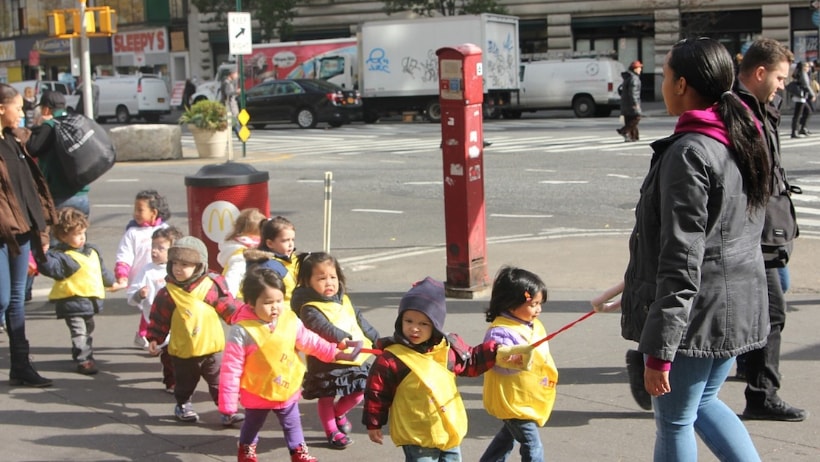If you’ve visited an early childhood classroom, you know the excitement that comes when a child finds out their assigned job for the rest of the day. These little learners love responsibility, which means that they’ll gladly take on any role they’re given because it is theirs and theirs alone for the day. From line leader to garbage collector, from door holder to clipboard carrier, the kids get excited to see what their responsibility of the day is. For the teachers of classes with 10 or more kids, that means coming up with some creative responsibilities.

I remember having these rotating duties as a preschooler myself. And while you might assume that line leader is the most coveted role, I always loved being the caboose, or in other words, the last one in line. There’s something to be said for the power of being able to see the rest of the line and the fact that everyone else in the class has to walk at least as fast as the person at the end.
This week we read Parshat Beha’alotcha. In this section of text we receive the commandment to light the menorah in the Tabernacle. We also learn of the Levite army, the sacrifice of Passover, and how we might celebrate a second Passover if we miss the first. The portion ends with Yitro, Moshe’s father-in-law, returning to his own people, the appointing of 70 elders to assist Moshe, and finally Miriam’s punishment for gossiping about her brother. The middle of the text, however, focuses on the Israelites and the way in which they will finally move through the desert.
The directional guides along the journey (the “line leaders”) are represented as a cloud by day and a fire by night, and the Mishkan is a sort of magic wand that also guides the people as they move. Everyone has their place in the line, including the “caboose,” which is the tribe of Dan. In the Torah, Dan is described as “gatherers.” For this reason Rashi comments that the tribe’s task was not only to be last in line, but to gather up lost objects dropped on the way and return them to their owners.
Another commentator speculates that not only would they be responsible for lost objects, but for individuals who may have strayed from the course. Perhaps they were chosen for this role because while the tribe of Dan is portrayed as weak of faith (later becoming an idol-worshipping community) they were strong in love for the community.
The caboose, the last in line, has the job of helping everyone to keep up. The members of the tribe of Dan, while perhaps not as eager as everyone else, were not the stragglers. They still had a job to do. Even if you’re bringing up the rear, wherever you stand in the line, wherever you are on the spectrum, you’re a part of the community. The same goes for our Neveh Shalom community. Whether you’re a service leader, board member, Kiddush maker, cookie baker, or a more casual observer from behind, the role you choose isn’t nearly as important as knowing your role matters.



